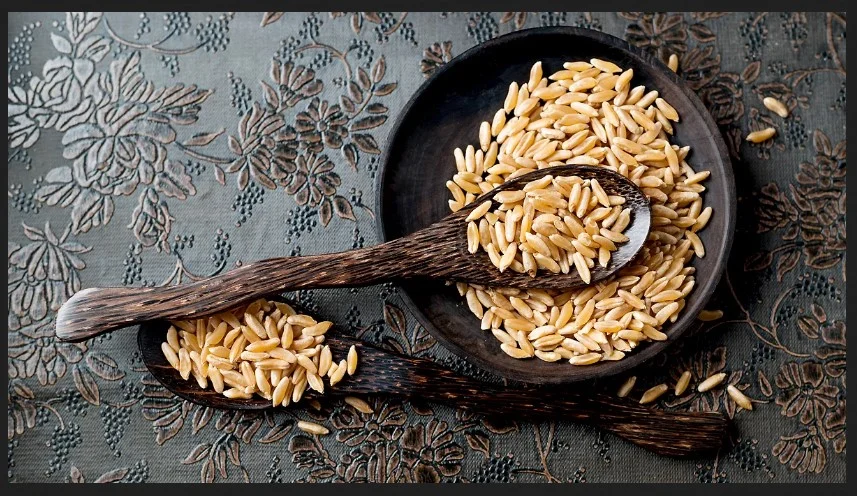In recent years, ancient grains have made a resurgence in the world of nutrition, appearing on grocery store shelves and in trendy recipes. From quinoa and amaranth to farro and spelled, these grains are celebrated for their rich history and nutritional value. But what exactly makes ancient grains so beneficial, especially when incorporated into a healthy cereal?
What Are Ancient Grains?
Ancient grains refer to cereal grains and seeds that have remained largely unchanged over the last several hundred or even thousands of years. Unlike modern wheat or rice, which have been bred extensively to increase yield, ancient grains retain their original, unaltered genetic structure. This includes grains like quinoa, millet, spelled, farro, barley, amaranth, and teff.
Rich In Nutrients
One of the most compelling reasons to incorporate ancient grains into a healthy cereal is their nutritional density. Ancient grains are packed with essential nutrients such as vitamins, minerals, fiber, and protein.
-
High Fiber Content:
Fiber is crucial for digestive health, and many ancient grains are particularly high in it. Grains like farro, barley, and quinoa offer a significant amount of dietary fiber, which helps regulate digestion, prevents constipation, and promotes a feeling of fullness.
-
Rich in Vitamins and Minerals:
Ancient grains are naturally rich in key vitamins and minerals, including B vitamins, iron, magnesium, and zinc. These nutrients are vital for maintaining energy levels, supporting immune function, and promoting overall well-being.
Better Protein Content
Compared to modern grains, ancient grains generally offer a higher protein content. Quinoa, for example, is considered a complete protein, meaning it contains all nine essential amino acids that the body needs to function properly. This is especially beneficial for those following a plant-based diet, as it provides a quality protein source without the need for animal products.
Adding protein-rich grains to your breakfast cereal helps provide sustained energy throughout the day and supports muscle repair and growth. Plus, when combined with other plant-based foods like nuts and seeds, ancient grains create a nutrient-dense powerhouse meal.
Antioxidant Properties
Ancient grains also pack a punch when it comes to antioxidants. Antioxidants help protect the body from oxidative stress and damage caused by free radicals, which can lead to chronic diseases such as heart disease and cancer.
Grains like teff, amaranth, and millet are high in antioxidant compounds, which have anti-inflammatory properties. Regular consumption of these grains as part of a healthy cereal may help reduce inflammation in the body.
Gluten-Free Options
For individuals with celiac disease or gluten sensitivity, finding nutritious, gluten-free grains can be challenging. Fortunately, several ancient grains, including quinoa, amaranth, millet, and teff, are naturally gluten-free. Incorporating these grains into gluten-free cereals ensures that individuals with gluten restrictions can still enjoy a nutritious and balanced breakfast without compromising on taste or nutrition.
This makes ancient grains an excellent option for those looking to diversify their gluten-free diet while maintaining proper nutrient intake.
Lower Glycemic Index
Another significant benefit of ancient grains is their generally lower glycemic index (GI) compared to processed grains. The rate at which a food elevates blood sugar levels is measured by the glycemic index. Foods with a low GI release glucose more slowly and steadily. Which helps to prevent spikes and crashes in energy levels.
Ancient grains like barley, quinoa, and farro have a lower GI than refined cereals or white bread, making them ideal for individuals managing blood sugar levels, such as those with diabetes. Including low-GI grains in your breakfast cereal can promote better blood sugar control, reducing the risk of insulin resistance and other metabolic issues.
Heart Health
The high fiber content, antioxidants, and lower glycemic index of ancient grains all contribute to improved heart health. Fiber, particularly soluble fiber found in grains like barley and oats, has been shown to reduce levels of LDL (bad) cholesterol. Which is a major risk factor for heart disease.
Incorporating ancient grains into your cereal can help protect against cardiovascular issues by improving cholesterol levels, reducing inflammation, and supporting healthy blood pressure.
Sustainability And Environmental Benefits
In addition to their health benefits, ancient grains are often more environmentally sustainable compared to modern, heavily processed grains. Many ancient grains are grown using traditional farming methods that require fewer chemical inputs like pesticides and fertilizers. They are also often more resilient to harsh environmental conditions, such as drought and poor soil quality, making them a more sustainable option for food production.
Choosing cereals made with ancient grains can contribute to a more eco-friendly diet, supporting both your health and the environment.
Less Processed, More Whole Foods
Many of the cereals made from ancient grains are less processed than their modern counterparts. When you opt for cereals containing whole ancient grains, you’re choosing a product that has been minimally altered, meaning it retains more of its natural nutrients and fiber. Highly processed cereals, on the other hand, are often stripped of their nutritional value and loaded with added sugars and artificial ingredients.
By consuming less processed, whole-food-based cereals, you not only boost your nutrient intake but also avoid the potential health risks associated with over-processed, sugary cereals.
Enhanced Digestive Health
The combination of fiber, protein, and antioxidants in ancient grains also benefits your digestive health. Fiber, especially, is essential for maintaining a healthy gut, promoting regular bowel movements, and preventing constipation. Soluble fiber found in grains like barley and oats feeds beneficial gut bacteria. Supporting a balanced microbiome and overall digestive wellness.
When included in a daily cereal, ancient grains can enhance digestive function. And prevent common gastrointestinal issues like bloating or irregularity.
Boosted Energy Levels
Breakfast is often referred to as the most important meal of the day. And a cereal made with ancient grains can be the perfect fuel to kickstart your morning. The complex carbohydrates found in ancient grains provide a steady release of energy. Preventing the mid-morning energy slumps often caused by sugary cereals.
